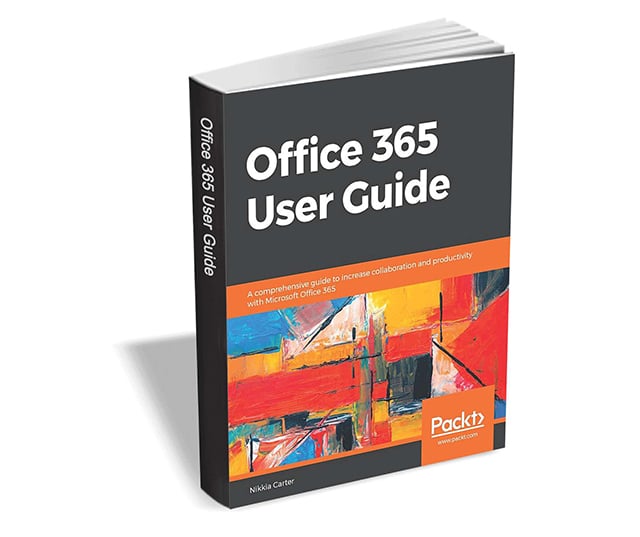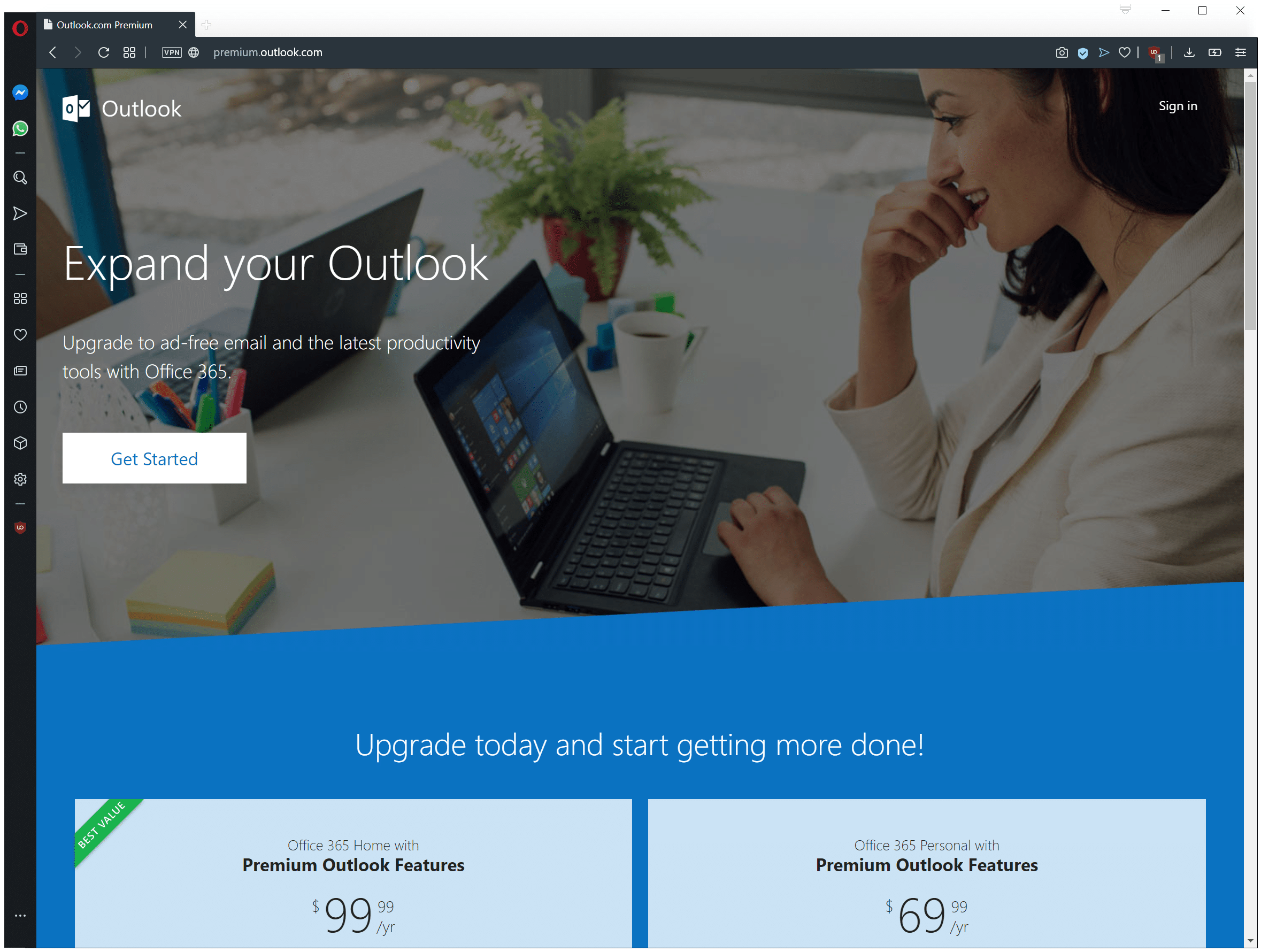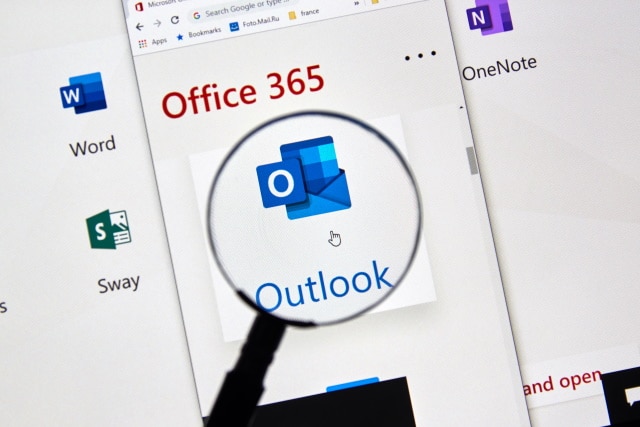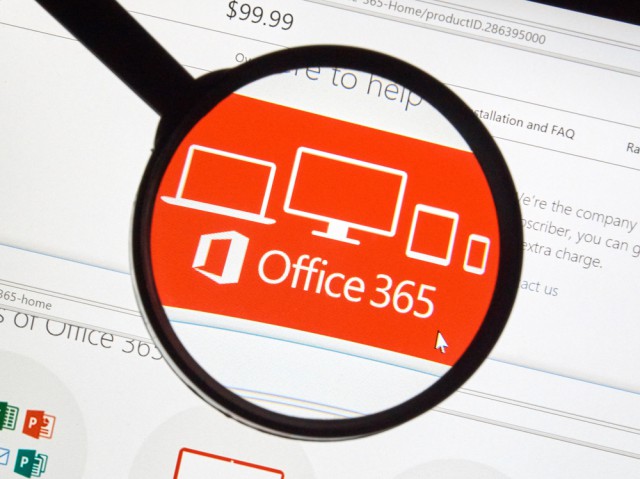
Get 'Office 365 User Guide' ($23.99 value) FREE for a limited time
Microsoft Office 365 combines the popular Office suite with next-generation cloud computing capabilities. With this user guide, you'll be able to implement its software features for effective business communication and collaboration.
This book begins by providing you with a quick introduction to the user interface (UI) and the most used features of Office 365.

Get 'Microsoft Office 365 All-in-One For Dummies' ($24.00 value) FREE for a limited time
Microsoft Office 365 offers the same productivity power as past versions of Microsoft Office along with tools designed to boost collaboration in the workplace and instant access to the latest Office updates without buying a whole new software package. It’s an ideal solution for both the office and home use.
The author of the bestselling Microsoft Office All-in-One For Dummies shares his advice on how to navigate the nuts and bolts of getting things done with Office 365. Look inside for step-by-step instructions on Excel, Outlook, Word, PowerPoint, Access, and OneNote, along with a dive into the cloud services that come with Office 365.

Attackers use Office 365 tools to steal data
Targeting of SaaS user accounts was one of the fastest-growing problems for organizations, even before COVID-19 forced a rapid shift to remote work, but a new report shows cybercriminals are using built-in Office 365 services in their attacks.
The study from network detection and response company Vectra, based on four million monitored Office 365 accounts, shows that 71 percent of of those surveyed had seen suspicious Office 365 Power Automate behaviors.

Microsoft resolves issue that wiped out many of its services
Numerous Microsoft 365 services were knocked offline for several hours, leaving users unable to log into accounts and use various tools. Affected services included Office.com, Outlook.com and Teams, and the problem hit users around the world.
The company scrambled to determine the root cause of the issues, eventually homing in on a "recent change" which needed to be rolled back. This, however, did not ultimately solve the problem, so Microsoft was forced to put other mitigations in place.

Microsoft is bringing disposable email addresses to Office 365
Gmail and numerous other web-based email services have long supported the option of creating disposable email addresses using a +xxx suffix. Now Microsoft is catching up with the competition and is planning to bring this option to Office 365.
The company refers to the upcoming feature as Plus Addressing, and it's due to arrive at some point in the third quarter of this year.

Sadly, Money in Excel is not the rebirth of the beloved Microsoft Money
More than a decade ago, we learned Microsoft Money was being canceled. At the time, I worked in banking and many of my clients were upset about it. Believe it or not, many people really depended on Microsoft's financial organization software. It was truly beloved. Why the company canceled it I don't know for sure, but I'd guess the Windows-maker saw the writing on the wall -- the future of money management was mobile apps and web-based account aggregation services, such as Mint.com. Financial software that you install to a PC's storage disk, such as Microsoft Money, was on borrowed time.
Fast forward to 2020, and today, Microsoft announces a new way to manage your money using a PC -- Money in Excel. Sadly, this is not the rebirth of Microsoft Money, but instead, a plugin/template for Excel that allows you to easily import your financial information. This is not really a Microsoft service, either. The Windows-maker has tapped Plaid.com to perform the actual aggregation. Once imported, you can then track your spending, including viewing graphical charts to better understand both where your money is and where it is going.

Microsoft opens a can of whoop-ass on reply-all email storms in Office 365
When you work in an office, there are many annoying things you must put up with, such as coworkers microwaving stinky fish for lunch, or dealing with people that never refill the paper tray in the printer.
There is probably nothing more annoying, however, than reply-all email storms. This is where one coworker accidentally selects “reply all” rather than “reply” and ends up sending an email to a huge list of people. Then, other people in the organization do the same thing, creating a massive email chain that clogs up everyone’s inboxes. Thankfully, Microsoft is finally trying to end this nightmare in Office 365 (aka Microsoft 365) with the all-new “Reply All Storm Protection” feature.

How Malicious Azure apps can be used to target Office 365
Infected mail attachments and malicious links are common ways for hackers to try to infiltrate organizations.
Researchers at cybersecurity company Varonis have uncovered at new attack route in the form of malicious Azure apps. Azure apps don't require approval from Microsoft and, more importantly, they don't require code execution on the user's machine, making it easy to evade endpoint detection and antivirus systems.

Office 365 becomes Microsoft 365 -- a 'subscription service for your life'
Microsoft has done a spot of rebranding today, replacing Office 365 with Microsoft 365, and introducing personal and family subscriptions.
This builds on the foundation of Office 365, but improves on it and adds some useful consumer focused apps and features.

Vectra helps enterprises protect against Office 365 breaches
As more services move to the cloud, enterprises are exposed to increased risks from data breaches, and around 40 percent of organizations have suffered from Office 365 account takeovers.
According to Microsoft's Q3 2019 earnings call, there are more than 180 million monthly users on Office 365, which means there's a big attack surface out there for cybercriminals. That's why threat detection and response specialist Vectra AI has announced a new tool to help businesses protect themselves.

That Outlook.com Premium email address? Gone, unless you get an Office 365 subscription
Microsoft launched a limited test of Outlook.com Premium back in 2016. This was a subscription-based service that anyone could sign-up for after the test period ended to gain access to a number of benefits including up to five personalized (custom) email addresses and an ad-free environment.
Outlook.com Premium became available to users from the United States in the same year for an introductory price of $19.99 instead of the regular price of $49.99.

Microsoft's web-based Outlook 365 is leaking users' IP addresses in emails
Anyone using Office 365's webmail component to send emails is unwittingly sharing their IP address with the people they communicate with.
The web-based Outlook 365 inserts the sender's IP address into the header of an email, which makes it stand apart from other webmail services such as Gmail -- and even Microsoft's own Outlook.com. While the injected IP address serves something of a purpose, it's also a privacy and security risk that many users may not be aware of.

German schools ban Microsoft Office 365 because of privacy concerns
The German state of Hesse has banned schools from using Microsoft Office 365 because it fears the software opens up student and teachers' private information to the risk of "potential access by US authorities".
The Hesse Commissioner for Data Protection and Freedom of Information (HBDI) believes that Office 365 is in contravention of GDPR legislation, and also expressed concerns about the collection of telemetry data by Windows 10.

The ABCs of Microsoft Office 365's Data Loss Prevention (DLP)
When it comes to data breaches, it's not a matter of if a breach will occur, it’s a matter of when. And regardless of how substantial -- or how advanced -- you think your cybersecurity is, you’re still vulnerable.
The most recognizable data breaches for 2019 (so far) include:

Microsoft's core platform isn't software, it's trust
For the first time in a half-decade, I watched a Microsoft Build keynote this morning. Time gives fresh perspective, looking at where the company was compared to where it is today. Listening to CEO Satya Nadella and other Softies, I repeatedly found myself reminded of Isaac Asimov's three laws or Robotics and how they might realistically be applied in the 21st Century. The rules, whether wise or not, set to ensure that humans could safely interact with complex, thinking machines. In Asimov's science fiction stories, the laws were core components of the automaton's brain—baked in, so to speak, and thus inviolable. They were there by design; foundationally.
Behind all product design, there are principles. During the Steve Jobs era, simplicity was among Apple's main design ethics. As today's developer conference keynote reminds, Microsoft embraces something broader—design ethics that harken back to the company's founding objectives and others that share similar purpose as the robotic laws. On the latter point, Nadella repeatedly spoke about "trust" and "collective responsibility". These are fundamental principles of design, particularly as Artificial Intelligence usage expands and more corporate developers depend on cloud computing platforms like Azure.
